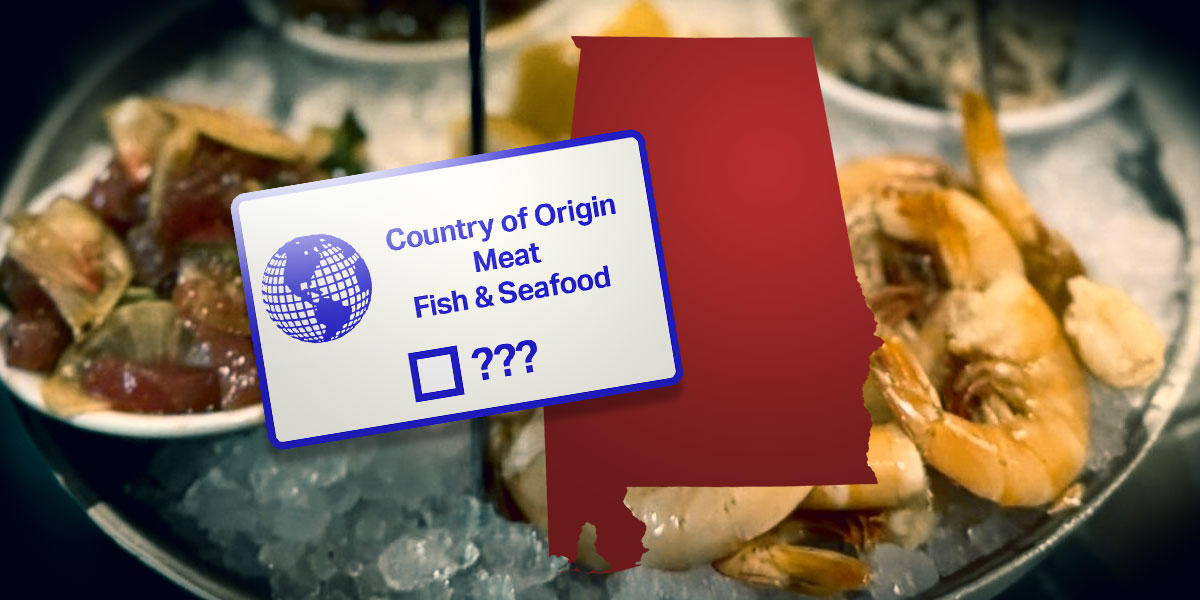On the tail end of a high-profile seafood fraud case in Mississippi where a restaurant admitted to selling mislabeled imported fish as local Gulf seafood, a new Alabama law will go into effect on October 1, 2024 to prevent similar deception.
The Mississippi case, which concluded with the restaurant forfeiting $1.35 million and pleading guilty to conspiracy and wire fraud, was a consequence of serving seafood to customers made with low-grade, frozen fish from Africa, Suriname, and India — claiming they were caught in the Gulf of Mexico. In doing so, customers were charged substantially higher prices for their meals.
Alabama State Rep. Chip Brown (R-Hollinger’s Island) introduced a bill requiring Alabama restaurants disclose whether the seafood they serve is either domestic or imported. Governor Kay Ivey signed that bill into law, and later this year, it will go into effect.
State Rep. Brown said that the law is needed given the increasing prevalence of foreign seafood in Alabama that is being incorrectly labeled and priced, as is well evidenced in the Mississippi scandal.
RELATED: Restaurants in Alabama to be required to disclose country of origin of fish and shrimp
“Alabama’s commercial seafood industry plays a vital role in our economy, and with foreign caught products flooding the U.S. market, it is essential that we support it, protect it, and promote it,” Brown said this week.
“By requiring disclosure if seafood is domestic or imported, we can encourage the use of products caught in Alabama, ensure that consumers are informed about the food they consume, and hold restaurants accountable if they commit similar fraud.”
Specifically, the new law requires restaurants disclose whether seafood is domestic or imported on the menu listing for dishes they sell or on “conspicuous signage” plainly visible to diners and patrons.
Advertisements for seafood products and dishes sold by food service establishments are also required to include the information under the bill’s provisions. Additionally, the law mandates that the same methods must be used to disclose if fish or shrimp products are farm-raised or caught in the wild.
The law will go into effect October 1, 2024 and the Alabama State Department of Public Health will be responsible for enforcing the new rules.
Austen Shipley is a staff writer for Yellowhammer News. You can follow him on X @ShipleyAusten













